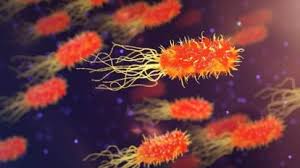Syphilis : Improved Testing

Improved testing has led to the detection of over 6,000 cases of syphilis, a sexually transmitted disease primarily linked to unsafe sex, according to data from the Mumbai AIDS Control Society (MDACS) between 2018-19 and 2022-23.
- Syphilis is a sexually transmitted infection (STI) that can cause serious health problems if you do not treat it.
- It is caused by the bacteria, Treponema pallidum.
- After the infection happens, syphilis bacteria can stay in the body for many years without causing symptoms. But the infection can become active again.
- People usually get syphilis from sexual contact with someone who has it.
- It can also pass from mother to baby during pregnancy, childbirth, and sometimes through breastfeeding.
- Syphilis develops in stages.
- The symptoms vary with each stage and is often painless.
- The disease starts as a sore that’s often painless and typically appears on the genitals, rectum, or mouth.
- Sometimes it causes swelling in nearby lymph nodes.
- Syphilis usually causes a non-itchy skin rash, often on your hands and feet.
- Many people do not notice symptoms for years. Symptoms can go away and come back.
- If left untreated, it can cause serious health issues. It can permanently damage your heart, brain, muscles, bones, and eyes.
- Syphilis is treatable and curable. It is easy to cure with antibiotics, especially during in the early stages.
- Penicillin is the most commonly used medication for syphilis.




